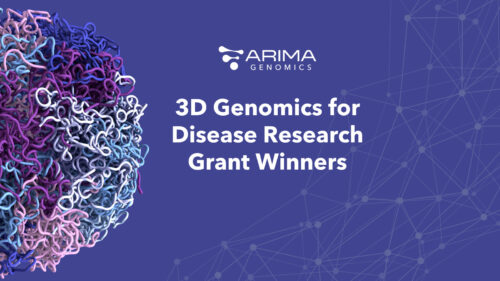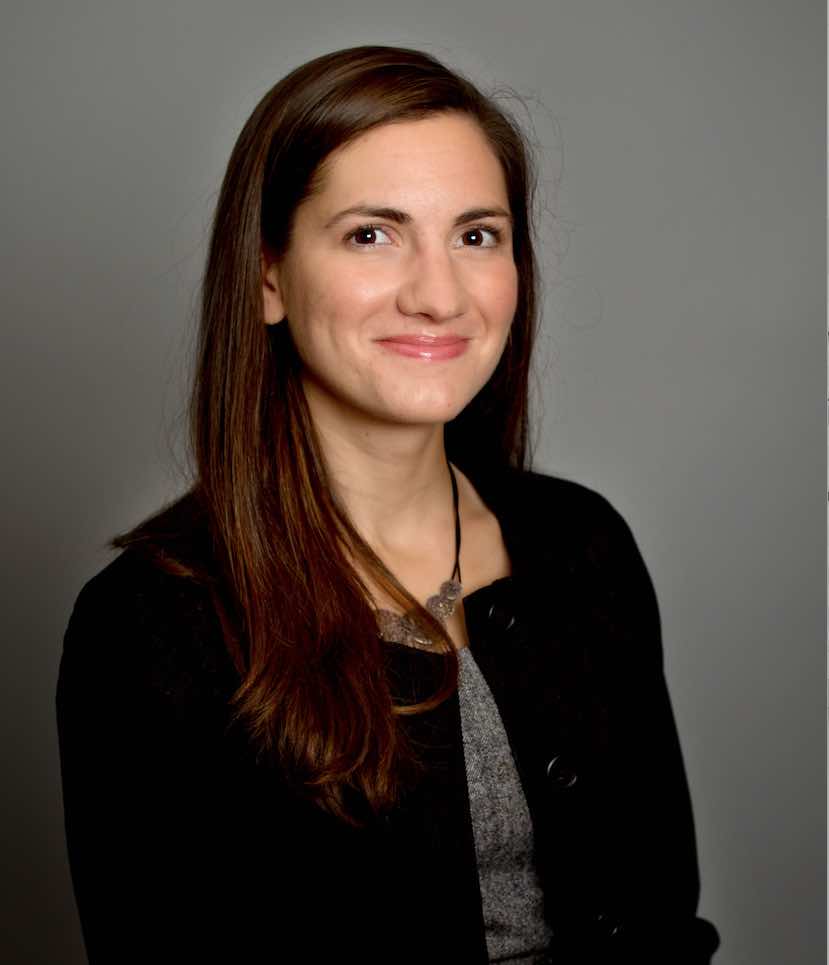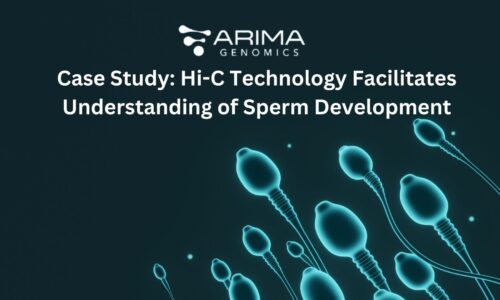September 15, 2022
Share
Arima Genomics’ 3D genomics solutions can help disease researchers gain unparalleled access to the sequence, structure, and regulatory landscape of the human genome, helping expand understanding of disease mechanisms, identify novel biomarkers, and establish new drug targets.

Our 2022 Disease Research Grant program offered researchers the opportunity to consider new ways to leverage 3D genomics to better understand complex disease processes and ways to address them. For the first time our grant program offered two opportunities to use Arima technology through an Arima Services Award, and an Arima Kit Award.
We received many outstanding submissions ranging from critical Alzheimer’s research to infectious disease, and oncology research. Choosing just two projects was a real challenge, but today, we are thrilled to announce the winners of this grant.
Arima Services Award

Jessica St. Laurent, MD, Brigham and Women’s Hospital
Grant Winner: Jessica St. Laurent, MD – Clinical fellow in Obstetrics, Gynecology and Reproductive Biology
Institution: Brigham and Women’s Hospital
Project Goal: Understanding gene regulation and epigenetic mechanism using genome-wide HiC to define the implications of differences in promotor methylation on risk of gestational trophoblastic neoplasia in complete hydatidiform mole.
Dr. St. Laurent and her team work to understand a rare form of placental cancer called gestational trophoblastic neoplasia (GTN), which can be deadly if not properly treated. The disease is an excellent model for understanding placental development and general carcinogenesis.
This work will build on prior studies which uncovered differences in levels of promotor methylation present in premalignant complete hydatidiform mole (CHM) samples, which help predict which of these tumors become malignant. The team plans to use Arima HiC to map chromatin conformation for CHM samples (previously tested with other sequencing and proteomic methods) in hopes of defining the steps in chromatin organization that accompany the methylation events observed between the premalignant and malignant samples.
“Arima 3D genomics technology will help us better characterize and understand the mechanisms that lead to malignancy in molar pregnancies, and, we hope, inform new strategies for the treatment of this deadly disease which afflicts previously healthy women of reproductive age.”
– Jessica St. Laurent, MD
Arima Kit Award

Bo Xia, PhD, Broad Institute of MIT and Harvard
Grant Winner: Bo Xia, PhD – Gene Regulation Observatory Fellow
Institution: Broad Institute of MIT and Harvard
Project Goal: Deep learning-enabled high-throughput discovery of disease-specific 3D genome regulators
Dr. Xia studies gene regulation to understand how diseases like cancer result from gene expression gone awry. He and his collaborators recently developed C. Origami, a deep neural network model that accurately predicts cell type-specific chromatin organization. Moreover, they developed an in silico genetic screening framework to facilitate high-throughput discovery of novel and cell type-specific regulators on 3D chromatin architecture.
The team plans to use the Arima-HiC+ kits to validate targets from prior work on T-cell acute leukemia cells to test their hypothesis that disease-specific trans-regulators lead to 3D chromatin conformation changes, which drive cancer’s development and/or progression.
“Research has shown that chromatin changes play an important role in diseases including cancer, now comes the critical work of applying 3D genomics approaches toward the identification of new treatment approaches that address these underlying challenges.”
– Bo Xia, PhD
Congratulations to Dr. St. Laurent and Dr. Xia on their awards. We are honored to support these two intrepid scientists as they work to understand the molecular mechanisms of disease.
Learn more about how Arima kits and services can power your disease research project.



